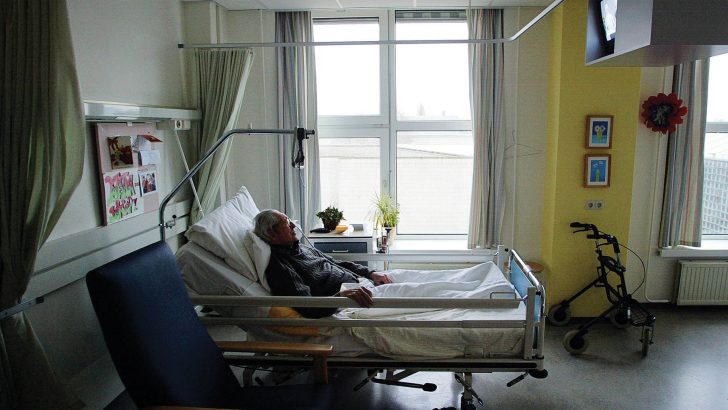The first time I heard of the town of Arundel in England it was in connection with the intriguing poem ‘An Arundel Tomb’ by Philip Larkin.
Unfortunately the tomb, in nearby Chichester, with its romantic husband and wife statues did not figure in last Sunday’s Songs of Praise (BBC One). We did learn about the Dukes of Norfolk that stayed true to their Catholic faith despite persecution. One of these, Philip Howard was canonised under Pope Paul VI. He had tried to adapt to the new Protestant ways under Queen Elizabeth I, but reverted to Catholicism and then wrote her a letter explaining why he felt he had to flee the country. Unfortunately he was intercepted in the Channel and jailed in the Tower of London for 10 years until he died. Henry, the 15th duke had the local church built for his 21st birthday, and this later became a cathedral, as explained by the Right Rev Richard Moth, Bishop of Brighton and Arundel.
Also in Arundel are the Poor Clare Sisters, who established their community there in 1886. Last year they became famous when their album ‘Light for the World’ topped the classical charts. The sisters hoped it captured the essence of their way of life and would bring God to people. It came at a particularly suitable time, the start of the pandemic. The music in the show was uplifting as always, though it was tinged with sadness as we watched older recordings with the massed congregational singing that is no more for now.
A few weeks ago I drew attention to a very unbalanced item about assisted suicide and the Dying with Dignity Bill currently working its way through the Oireachtas. This was on Lunchtime Live (Newstalk) with a stand-in presenter. On Tuesday of last week, with Andrea Gilligan back in the chair, they returned to the topic, with an imbalance in favour of those against the bill. It felt like an effort to correct a previous error of judgement, and Gilligan several times drew attention to that previous coverage, as if to stress the rebalancing. However this time the majority of texts read out were in support of the bill, even though the host said initially she was getting lots of messages against it. Last time it was all guests and most texters supporting the bill.
The item started with Senator Lynn Ruane describing the process as the bill was examined by the Oireachtas Justice Committee. David Quinn of the Iona Institute drew attention to the many downsides of legalising assisted suicide. He said it sent out a ‘terrible message’ to the terminally or even seriously ill. It wasn’t a matter of improving the bill as the flaws were intrinsic in the very idea behind it. Citing other countries he pointed out that measures move on to include the psychologically and mentally ill. The ‘slippery slope’ might be a well-worn cliché but it is a reality. It was clear from the attitude of texters that if you went down the ‘pro-choice’ route it would hard to argue against denying it to anyone.
Palliative care consultant Regina McQuillan feared the pressure that would come the way of those who were ill, even from family, and in her work she had seen such pressure in action already, sometimes from family members who were worn out from the caring. What we needed, she said, was better care for the terminally ill and those with disabilities.
Again on Newstalk, on that evening’s Hard Shoulder, we heard arguments for and against the bill from two people with severe illnesses. Brian Wall thought terminology was ‘hugely important’ in the discussion and I’d agree, but I thought his own use of language was overly euphemistic, making the bill sound harmless. He said he wouldn’t describe what was proposed as ‘assisted suicide’, said he wouldn’t regard it as taking his own life and spoke of ‘easier transition’ and a ‘medical option’. It was, he maintained, about saying a dignified goodbye, but surely natural death doesn’t preclude that.
On the other side Kathleen Rogers pointed out the dangers of the bill, how it would send the wrong signal to vulnerable young people, how it would affect all of the society, how it would affect medical care and turn the concept of the medical profession on its head.
Kieran Cuddihy presented well, referring to this combination of ‘personal conversation’ and ‘public debate’.
Pick of the Week
VOX NOSTRA WITH VLAD SMISHKEWYCH
RTE Lyric FM Sun 25 July 7 am
Early music for a modern Camino: Vlad explores pilgrimage music for Santiago on St James jubilee year feast day.
QUEST FOR SHAKESPEARE
EWTN Sun 25 July 9 am
Issue of choices and consequences from choices made. Negative consequences are discussed from Prince of Aragon’s worldliness and choices made. Importance of marriage is highlighted.
SONGS OF PRAISE
BBC Two Sun 25 July 1.15 pm
The Rev Kate explores the Catholic history of Boscobel House, where after being defeated in the English Civil War, King Charles II went into hiding.


 Brendan O’Regan
Brendan O’Regan Photo: CNS
Photo: CNS 